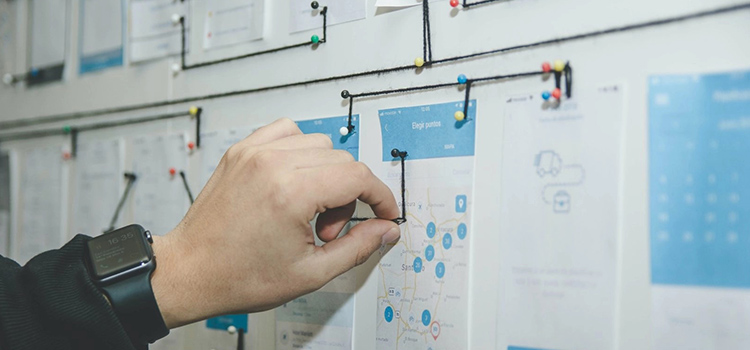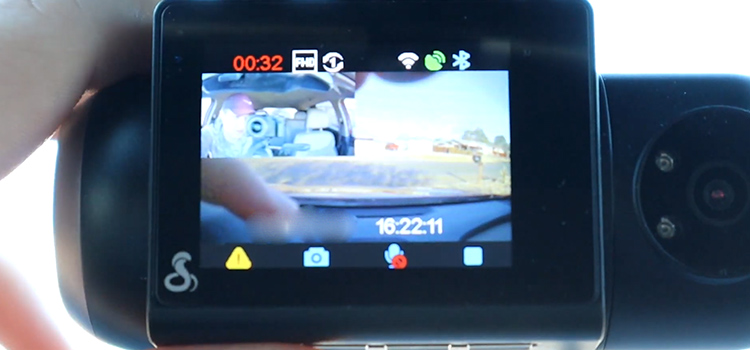How Technology Is Reshaping the Property Leasing Industry
The property leasing industry is undergoing a seismic shift, thanks to the advent of cutting-edge technologies. In an era where efficiency, accuracy, and customer service can make or break a business, technology is not just a tool but a game-changer that is redefining the dynamics of property leasing. From blockchain to artificial intelligence, the array of technological innovations at our fingertips is playing a pivotal role in streamlining operations, enhancing lease administration, and ultimately driving the sector forward.
The days of manual lease administration, with its paper-laden offices, cumbersome file cabinets, and error-prone processes, are numbered. Today, the property leasing industry is embracing a new digital ethos that emphasizes automation, data analytics, and customer engagement through technology. This digital revolution is not only transforming existing processes but also creating new paradigms for how properties are leased, managed, and experienced by tenants.

1. Automation: The Cornerstone of Modern Lease Administration
At the forefront of this transformation is the automation of lease administration. Lease administration software has become an essential tool for property managers and landlords. It simplifies and automates tasks such as tracking lease terms, managing renewals, and ensuring compliance with various regulations. With such systems in place, inaccuracies are reduced, and the time spent on routine tasks is slashed, allowing professionals to focus on strategic decision-making and improving tenant relations.
2. Big Data and Analytics: Making Informed Decisions
Data is the new currency in the digital age, and the property leasing industry is rich in it. The integration of big data and analytics allows property managers to gain insights into market trends, tenant behaviors, and financial performance. By harnessing this data, they can make informed decisions about pricing, property improvements, and tenant retention strategies. This level of analysis was unimaginable a few decades ago, but now it is driving the industry toward more scientific and profitable approaches.
3. Artificial Intelligence and Machine Learning: Enhancing Customer Experience
Artificial intelligence (AI) and machine learning are also making their mark on property leasing. Chatbots and virtual assistants are becoming common on leasing websites, providing potential tenants with instant responses to inquiries and guiding them through the initial stages of the leasing process. Machine learning algorithms are being used to predict which tenants are most likely to renew their leases and which properties will yield the highest returns, allowing managers to tailor their approaches accordingly.
4. Mobile Technology: Accessibility and Convenience
In a world where smartphones are ubiquitous, the property leasing industry has not been left behind. Mobile apps are now a significant touchpoint for tenants, offering them the convenience of paying rent, logging maintenance requests, and even controlling smart home features directly from their phones. For property managers, mobile technology means they can manage their portfolios on the go, staying updated with real-time notifications and reports.
5. Virtual and Augmented Reality: A New Frontier for Property Showings
Virtual reality (VR) and augmented reality (AR) are providing innovative ways to showcase properties. Potential tenants can now take virtual tours of properties from anywhere in the world, a feature that has become particularly valuable in the wake of travel restrictions and social distancing measures. AR apps can go a step further by allowing tenants to visualize their furniture in a potential new home, enhancing engagement and helping them make more informed leasing decisions.
6. Blockchain: Bringing Security and Transparency
Blockchain technology, best known for its association with cryptocurrencies, is also making inroads into property leasing. Its ability to create secure, transparent, and immutable records makes it ideal for managing lease agreements and transactions. Blockchain can reduce fraud, streamline transactions, and provide a clear audit trail, all of which contribute to a more trustworthy and efficient leasing process.
7. Internet of Things (IoT): Creating Smart, Connected Buildings
The Internet of Things (IoT) is turning properties into smart, connected environments. Sensors and IoT devices can monitor everything from energy usage to security, providing property managers with insights into how their buildings are functioning and where improvements can be made. For tenants, smart buildings offer a more personalized and comfortable living experience, with the ability to control various aspects of their environment remotely.
8. Online Platforms: Expanding Market Reach and Efficiency
Online leasing platforms have expanded the market reach for property listings, allowing managers to advertise directly to potential tenants. These platforms often come with pre-screening tools and digital lease-signing capabilities, making the leasing process faster and more efficient. They also provide a centralized place for lease administration, maintenance requests, and tenant communication.
Embracing the Future of Property Leasing
The integration of technology in the property leasing industry represents a pivotal shift from traditional methods to a more innovative, efficient, and tenant-centric approach. The digital revolution is enabling property managers and landlords to deliver better services, make more informed decisions, and offer an enhanced experience to tenants. In the competitive landscape of property leasing, those who leverage technology to improve their lease administration and overall operations are poised to reap significant rewards.
By harnessing the power of automation, data analytics, AI, and other emerging technologies, the industry is witnessing a marked increase in operational efficiency. The once time-consuming tasks of lease management, tracking payments, and maintaining properties are now streamlined through sophisticated software solutions. This transformation not only saves valuable time but also reduces the potential for human error, thereby increasing accuracy and reliability in lease administration.
The true impact of technology in the property leasing industry goes beyond operational improvements. It is about the value that these advancements bring to the human aspect of the business. Tenants enjoy more convenience, transparency, and engagement, while property managers gain insights that help them cater to the evolving needs of their clientele.
As the property leasing industry continues to evolve, it will be imperative for professionals to stay abreast of technological trends and to adapt accordingly. Those who are flexible and forward-thinking in their adoption of new technologies will distinguish themselves in a crowded marketplace. They will be the ones to set new standards for service excellence and operational efficiency in the ever-changing landscape of property leasing.
In conclusion, the digital revolution in property leasing is not merely a phase but a profound evolution of the industry. Technology is reshaping the way properties are marketed, leased, and managed, and it is doing so in a way that puts tenants at the heart of every process. The future of property leasing shines brightly with potential, and it is those who embrace technology with open arms who will lead the charge into this promising new era.
- 1. Automation: The Cornerstone of Modern Lease Administration
- 2. Big Data and Analytics: Making Informed Decisions
- 3. Artificial Intelligence and Machine Learning: Enhancing Customer Experience
- 4. Mobile Technology: Accessibility and Convenience
- 5. Virtual and Augmented Reality: A New Frontier for Property Showings
- 6. Blockchain: Bringing Security and Transparency
- 7. Internet of Things (IoT): Creating Smart, Connected Buildings
- Embracing the Future of Property Leasing
Subscribe to our newsletter
& plug into
the world of technology




